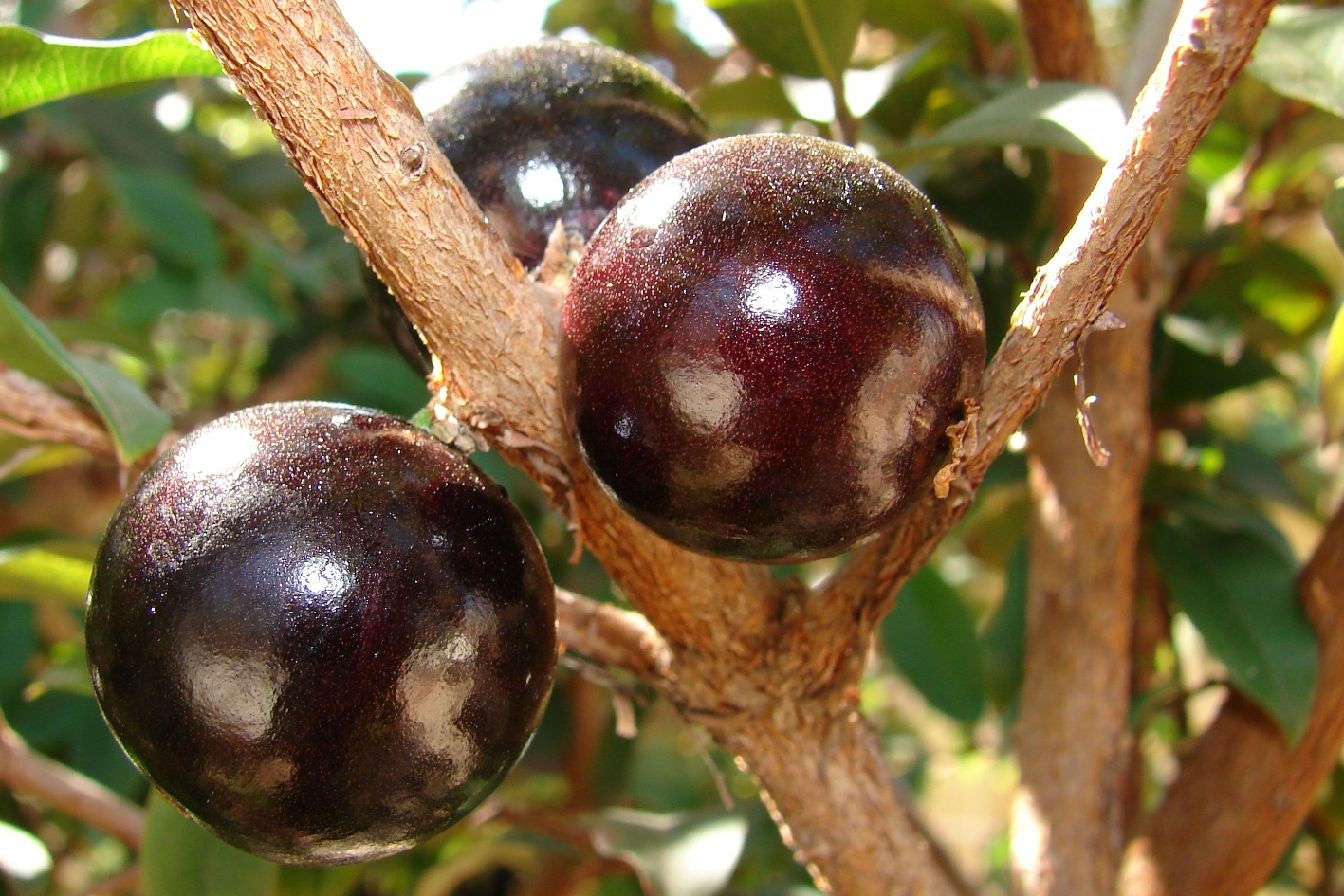
Discovering Brazil's hidden treasure
" In Brazil, jabuticaba has cultural significance beyond its culinary use, featuring prominently in traditional folklore and celebrations "
Nestled within the vibrant landscapes of Brazil lies a hidden treasure which is the jabuticaba, a delight for eyes and taste buds. Jabuticaba’s distinctive appearance with an enticing blend of sweet and tart flavours provides a very different sensory experience. Its name is said to come from an ancient indigenous language meaning “the place where tortoises are found”.
Native to Brazil’s lush forests jabuticaba trees thrive in subtropical climates. They love abundant rainfall and fertile soil. Part of the Myrtaceae family, these evergreens with their characteristic dense foliage and smooth, copper-coloured bark can reach up to 15 metres.
Jabuticaba’s uniqueness is its fruit-bearing capability directly on the trunk - a phenomenon known as cauliflory. The fruit bears a striking resemblance to grapes, with its small, round shape and deep purple to black hue when ripe. The smooth, thin skin, encases a juicy, translucent pulp dotted with small seeds. Upon tasting, one experiences a delightful combination of sweetness and tartness, reminiscent of a blend between grapes and plums. The flavour profile varies depending on the fruit’s ripeness, ranging from mildly tangy to intensely sweet.
Delectable taste aside, jabuticaba offers an array of health benefits. Rich in antioxidants, vitamins, and minerals, this Brazilian fruit supports overall well-being and vitality. It is particularly high in vitamin C, which boosts the immune system and promotes collagen production, as well as anthocyanins, which have been linked to improved heart health and cognitive function. Additionally, jabuticaba contains dietary fibre, aiding digestion and promoting gut health.
In Brazil, jabuticaba has cultural significance beyond its culinary use, featuring prominently in traditional folklore and celebrations. Enjoyed fresh as a snack or dessert it also lends itself well to a variety of culinary creations. Jabuticaba can be used to make jams, jellies, and syrups, as well as wines and liqueurs, showcasing its versatility in both sweet and savoury dishes.
As global interest in exotic fruits like jabuticaba continues to rise, sustainable cultivation practices are essential to ensure the longevity of its production. Efforts to promote agroforestry, organic farming methods, and conservation of natural habitats help support local communities while preserving the biodiversity of Brazil's rich ecosystems.
Jabuticaba stands as a testament to the beauty and bounty of Brazil's natural landscapes, offering a unique sensory experience that captivates the senses and tantalizes the taste buds. Whether savoured fresh from the tree or used in culinary creations, jabuticaba invites all who taste it to embark on a journey through the lush forests of Brazil and discover the magic of this extraordinary fruit firsthand.
Prepared by a Chaîne News Online Staff Writer
Researched from various sources. E&OE